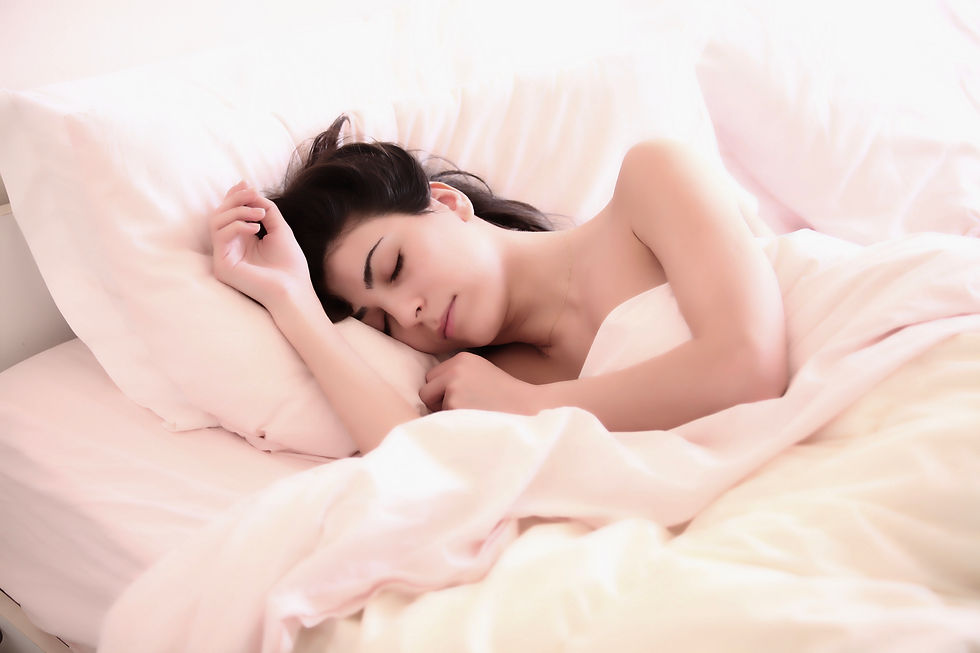Can Anxiety Cause Migraines? A Guide
- Susan Ginsberg

- Apr 10, 2025
- 3 min read
Migraines and anxiety appear to be a package deal for the many of those afflicted with them. Anxiety is a mood disorder that governs our thoughts, moods, and behaviors and feeds on ongoing worry or tension. Migraines are severe headaches characterized by light sensitivity, nausea, and excruciating pain. But can migraines be caused by anxiety? Are they linked? Learning why anxiety may be a migraine trigger is a good starting point.
Understanding Anxiety
There are so many types of anxiety, starting from generalized anxiety disorder (GAD) through panic disorder and social anxiety, to list but a few. They tend to induce a "fight or flight" response, releasing stress hormones like cortisol and adrenaline. Handy in the short term, chronic anxiety equates to constant stress impacting the body in a severe manner. Common symptoms vary from muscle tension, tiredness, and headaches, to difficulty concentrating.
As the anxiety continues, it has the potential to affect physical and mental well-being. Over time, such hypervigilance can create a cycle of physical and emotional pain. This includes an enhanced susceptibility to anxiety-induced migraines in anxious individuals.
The Relationship Between Anxiety and Migraines
Scientific studies clearly indicate that there is a relationship between migraine and anxiety. Many have conducted research claiming that patients of anxiety are strongly susceptible to migraines. Why? Because stress and anxiety induce the brain to release chemicals and neurotransmitters, which are liable for the stimulation of sensitivity towards pain in the body. Physical migraine triggering by anxiety-related muscle contraction also happens on the neck, shoulders, and scalp.
Second, anxiety is self-perpetuating. The anxiety of experiencing a migraine can cause tension, and tension makes it more likely to trigger one. Can anxiety cause migraines? Yes, they feed on each other reciprocally and create what professionals refer to as a "bidirectional relationship."
Management and Prevention Strategies
Breaking the cycle of anxiety-migraine starts by tackling the origins of the problems. Meditation and breathing can be shown to soothe the nervous system and reduce stress levels in general. Anxiety that might otherwise escalate into headache can be placated by activity like yoga or a walk.
Proper sleep and hydration are critical to regulation of migraines. Avoidance of triggers, i.e., food additives, excessive use of screens, or intake of caffeine, can also help. Cognitive behavior therapy (CBT) reduces frequency of migraine and anxiety for many.
Professional help can provide relief if lifestyle changes and home remedies are not able to erase symptoms. Professional help can even decrease anxiety symptoms, and migraine treatments can prevent them from occurring, which is an enormous contribution to quality of life. For instance, exploring techniques such as deep relaxation in Scottsdale may help reduce stress and promote overall wellness.
Knowing the Link for Better Health
Migraines and anxiety are interwoven and entwined symbiotically. The key to being in a better position to handle both of them lies in understanding the dynamics of their interrelationship. If you suffer from debilitating anxiety or migraines that strike you on a regular basis, take time to research relief because it does exist. For some, an anxiety attack migraine may feel overwhelming, but solutions are available to empower you.
For several years, I worked with one of the top migraine headache doctors in Chicago, Dr Larry Robbins, a neurologist who founded the Robbins Headache Clinic. I supported his migraine headache and chronic pain clients by teaching them wellness techniques to manage pain and anxiety. His testimonial speaks volumes coming from an established MD:
“Susan Ginsberg has been extremely helpful for our patients over the years; she provides a valuable service. We have patients with headaches, chronic pain, and anxiety, and what Susan teaches them is more valuable than the medications.”
Dr. Larry Robbins, MD-Neurologist at Robbins Headache Clinic
From wellness workshops teaching breathing techniques to medication, there is relief that can empower you to function better to coordinate between mental and physical well-being.





Comments